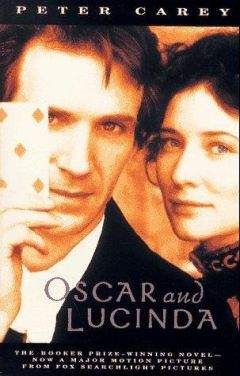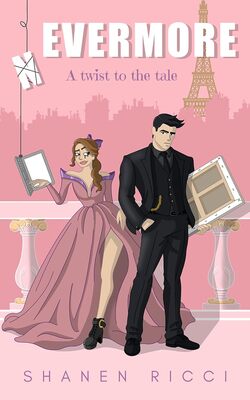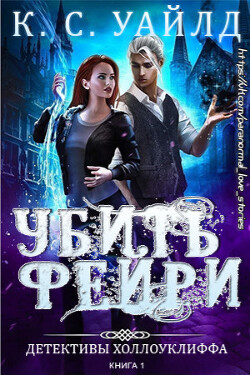Peter Carey - Oscar and Lucinda

Помощь проекту
Oscar and Lucinda читать книгу онлайн
" "The Lord is my shepherd/ " said Oscar, his eyes bright, his back straight, " 'I shall not want. Thou prepares! a table for me in the presence of mine enemies: thou anointest my head with oil.'
"
Mr Jeffris's hand grasped Oscar above the elbow and pulled him so hard that he cried out with pain. Mr Jeffris's blue-black hair was carefully brushed. His moustache was waxed. He smelt of the barber's shop.
"Out," shrieked Mr Jeffris. "Out now."
"I warn you," called Oscar. He was yanked from the tavern like a tooth. He left much laughter behind, but he did not hear it. He was aware only of his outrage, of his pain, his impotence, his hatred. He was hurled on to the bare ground. He was kicked. Many times. There were no witnesses to save him. He was afraid. He was a crab scuttling across the grim grey sand. He was a cur. There was a wagon. He crawled beneath its rancid axle. The boot followed him. The sword poked between the spokes of the wheel.
He prayed: Oh God, give me the means to smite Thy enemy.
102
A Christian Man
Percy Smith had always thought himself a good and Christian man. He did not say his prayers by rote. The envelopes he put inside the felt-lined plate in his parish church were fatter than the custom, not because he was wealthy but because he saw it as his duty. He was a gentle man. He was gentle with the animals he tended and went to unusual lengths to make sure they suffered as little as possible. He was faithful to his wife, and a loving and tender father to his baby girls.
But what he feared about his character was that all his tenderness
Oscar and Lucinda
was but the visible shadow of his cowardice. When he was gentle and kind to those who might suffer it was because he was one with them, and he was frightened.
He could not bear to hear the stories of Christ's crucifixion. Neither habit nor repetition dulled the pain of that spear in the side, the long, slow, thirsty agony of death. When a preacher held up to him the shining example of the Christian martyrs, he feared that he-in such a moment-would deny his God.
The journey under Mr Jeffris's leadership had confirmed all these fears he had about himself. He was a counterfeit and coward. He had tortured Oscar Hopkins with a funnel. He had not stood up to defend him. He had lowered his eyes and "yes, sirred" the little martinet. He had "gone along." He had persuaded himself it would do no harm. And he had sat there-how damnable this waswhile natives were slaughtered. And when Mr Hopkins had protested he had been one of those who tied him to a tree-on Jeffris's orders-so that he would cause no harm. All his anger and disgust, all that which should have decently gone outwards, was driven inwards and he found himself-this happy, optimistic, loving man-sharpening his axe, honing it, so it would be as sharp as a razor.
He did not think: A razor for my wrists. He thought no actual words. He worked the round whetstone on and on, tasting only the great deep well of evil from which he had drunk. When he had done the axe he began on the tomahawk.
He was seated thus, in the Ladies' Compartment, when he heard a cry and saw Mr Jeffris, sword raised high, booting Mr Hopkins in the backside and ribs. Mr Hopkins held an envelope which Mr Jeffris tried to snatch.
Mr Hopkins disappeared underneath the wagon. And then he was up beside the Ladies'
Compartment, trying to clamber up the steps.
"God help me," said Oscar Hopkins.
Mr Hopkins was almost in the wagon when Mr Jeffris took him by his shoulder. Percy Smith raised his tomahawk and brought it down on Mr Jeffris's upper arm. The head had not much weight. But Mr Smith was a strong man. He felt the bone cut. He felt the most immense satisfaction, a great shudder of something so close to pleasure you could not give it another name.
As Mr Jeffris stumbled back from the wagon, blood spurting through the fabric of his bright blue coat, Mr Smith saw that
Did I Not Murder?
Mr Hopkins had hefted the axe.
Mr Hopkins stood with his feet astride, the axe held incorrectly, the two white hands too close together. His face was blazing red. His mouth open. As the clergyman brought the axe up above his head, Mr Smith thought: He will hurt himself, he does it wrong.
"Hi," screamed Oscar Hopkins.
He brought the hate-bright axe down in the middle of Mr Jeffris's glistening, brilliantined head. And then his hands sprung loose from the handle. They were quivering and clapping. Mr Jeffris slumped to his knees and then tilted forward in the direction indicated by the ash axe handle. The blade was three inches into his skull which split around the orbit of his left eye. All the drinkers were inside the tavern. Mr Smith noted this before he did a thing. Then he took the blanket from the seat and wrapped it around the quaking Hopkins. He brought him forcefully to the ground and there, without thinking why or what he was doing, he swaddled him as though he were a little child. He stilled the thrashing limbs by force. He held him bodily across his knees and parted him.
103
Did I Not Murder?
"Mr Smith, did I not murder a man?" .'•'. •• ' ' >
"We did, we did." " '
"Then tell me, pray, why this dreadful levity? And why are we here? And where is our party?" Oscar had awoken on the morning of the day after the one in which Mr Smith had wrapped him in his blanket. It had taken some time to loosen himself from his sweaty swaddle, but when he was outside the familiar stained canvas walls of the tent, he discovered, not the scene of his nightmare, but a cool blue stretch of the Bellinger River, a wide, still sheet of water at a place where a rough little wharf had
Oscar and Lucinda
been constructed. At the wharf were moored two barges, or rather (because they were long craft with square-sawn bows), lighters. It was here that he found Percy Smith, a clean white shirt upon his back, busily hammering and sawing. He had already constructed an open platform across the two lighters.
"Our 'party' is at this moment going south in pursuit of Mr Jeff ris," called Percy Smith, bestowing upon Oscar a cheerful grin and running his hand through his short hair so that it stood up at the back in a cocky's crest. "They now think him nought but an oiler. They want their pay, and so they've gone to relieve him of it."
"Oh, Lord," said Oscar, and groaned, holding his head in his hands. Mr Smith put his hammer in his belt and sprang up the bound sapling ladder to the wharf.
"Whoa," he said. "Whoa, Neddy."
"Oh, God, " said Oscar, unconscious of where he walked, stumbling on piles of bearers which were stacked about his feet. "Oh, dear God, what have we done?"
"Ssh," said Percy Smith, guiding his friend back through the tangle of hessian bags and beams, off the wharf to solid ground.
"Ssh, you must not fear."
"I have killed a man."
"Your Maker will forgive you."
A shudder passed through Oscar's thin white body. Percy Smith felt it, and knew it for what it was. He was not without symptoms of the same variety, and yet what he felt, for the most part-he begged God forgive him-was exhilaration.
He felt so light. When he came across the wharf to Oscar he could have skipped.
'The Lord was his Maker, too," said Oscar severely.
"Look," said Percy Smith, "we are alive. He is dead. Give thanks to God for our deliverance." Percy Smith held Oscar by the arm and led him to a log beside the smoky camphre. He found some little sticks and leaves and, in a moment, had a blaze going. "They were nice enough to leave us tea and sugar and a billy. For the rest, they were in too much of a hurry."
"My church," cried Oscar, struggling to his feet.
"They did not take your church."
Oscar looked around him wildly and Percy Smith could not help laughing.
"Oh," said Oscar screwing up his white face into a crumpled page of irritation, "you are a madman."
Ana
Did I Not Murder?
"Your church is here," cooed Mr Smith. "Your church is here, my reverend sir. Indeed it is."
"It is no good to me here, fool," cried Oscar, standing straight up from his log and brandishing the finger-thin stick with which he had been poking into the little fire. "It must be in Boat Harbour. I have murdered the man who might get it there. And you, you-" he sighed. "Oh, dear." He sat down again. "I cannot blame you, Mr Smith, and what does any of this matter now when we are likely to be arrested?"
"Dear Mr Hopkins, please do be more cheerful."
"Cheerful!" shrieked Oscar.
"You are a regular little rosella. Look at you-burnt crimson and shrieking from the treetops. If there were troopers here they would soon know where to find us. But there are no troopers in the district."
"No police?"
"And even if there were a herd of Sydney constables, I bet you your laudanum bottle they would be too slow for Percy Smith. You should be proud to know me."
"Oh," Oscar said, "I am far worse."
"Do not 'worse' me, Hopkins. The knave was buried before a soul came out to see the sunlight. Congratulate me."
"Oh, I am sorry, Mr Smith, I cannot."
"Then have some johnnycake. It is a shame you were not awake to enjoy it hot." Oscar sipped his tea while Mr Smith watched him. "Who would have known me for a murderer?" he said. "I would not have recognized it in myself. Think of my poor mother, when she suckled me. ." He stopped and gazed into the smoke.
"Do not stew on it."
Oscar cupped his tea in his hand and looked around their campsite. Percy Smith watched him narrowly.
"You must not dwell on it."
"And where is the church on which account so much blood has been spilt?"
"It is all around you. Do you not recognize a pane of glass?" And indeed there were parts of the iron and glass church-all with their little labels flapping like manila leaves-scattered in neat piles all around the campsite and out on the wharf as well.
"I thought you were going to trip on the mullions." ….',• r
"Oh," said Oscar softly, "oh dearie me.":
"Do not dearie me." «t j
"Oh, Lord."
AfQ
Oscar and Lucinda
"Oh, nonsense." •'••
"And where are all the crates? And how will we. .?"
" 'Say not the struggle nought availeth, ' " said Percy Smith. " 'Our struggles and our hopes are vain.' How does it go? You have seen the crates."
"Smith/' said Oscar, "I beg you, I am in no state for silly puzzles."
"Then listen to me, and do not stew. I have rented these two lighters on the wharf. They are not, individually, big enough to carry the church, so I have done the mathematics. Now your church is fifty feet long and twenty-five feet wide."
'Twenty-two feet and six inches."
"Good. And all these bits and pieces weigh twelve tons, as you have told me often enough. And to support twelve tons on the water we will need barges to displace two hundred and forty cubic feet. And these chaps here, these ones will do this. We can take the church upriver on the tide. I have arranged for help in the construction. Two men can pole and row to keep the barge in the centre-stream. I figure we can be there in two days."
"And then we must construct the church."
"Not then," said Percy Smith. He stood up. He began to stride around the fire. "Not then, now, here. On the barge. You see, I have worked it out. We will enter Boat Harbour in glory. Can you imagine it? Can you see the look on their godless faces? A crystal vision. My oh my. Can you see it, Mr Hopkins? What a visitation it would be to see God's temple come to them upon the water."
"Mr Smith, I am tired."
"Do not be tired, my Reverend Jolly-man," said Percy Smith. "Lean on me. I am a practical man. I have the base plate already constructed on the water. It is a simple matter."
"But what will happen at the other end?"
"Why, dear Mr Hopkins, listen to this. I asked myself the same question. It is easy enough, I thought, to get this glass church built on water, but what will happen at the other end? And the answer is this. I have twelve wooden joists laid across the two barges. You must have seen them. But you did not, of course. You were Macbeth in a dream. I have been busy. I have twelve joists across, you see. When we are at Boat Harbour I will have twenty-four men lift the church by these joists and they can carry it. You should congratulate me."
'Twenty-four would not be enough. They must carry half a ton each."
"Then forty-eight or ninety-six. It doesn't matter. These towns are always full of men wanting to prove their strength. We will have them carry it up the main street like a float in a procession."
Mary Magdalene
"Mr Smith, why are you like this?",
"You would not like the answer, Mr Hopkins." v
"Tell me anyway."
"I am like this because we killed an evil man," said Percy Smith. "It has done me a power of good. I cannot tell you."
"And do you feel no shame?"
"Oh, yes, of course. And guilt, but I will tell you, in truth, that I have felt more sorrow to have slain a beast. That is something you never become accustomed to. You take care to make your knife sharp and to make the killing quick, but the moment always comes when you look that poor beast in the eye, and you can ask other farmers the same question and if they are honest they will tell you the truth-it is a dreadful thing. But this man was cruel. I am glad we killed him. I could not have borne to be a jellyfish one more day."
"And what of the Commandment we have broken?"
"I am sure the Almighty does not have a mind like a railway clerk."
"By which you mean?"
"He is not a puffed-up little toad in the government offices. He knows you are not a bad man." Oscar reached his hand into his pocket and found his laudanum was in its proper place.
"You should wash," said Percy Smith. "I have some soap."
"Yes," said Oscar. He did not believe any of the things Percy Smith said about God. 104
Mary Magdalene
Kumbaingiri Billy was not in that tavern or any other tavern, ever. But the woman on the other side of the Tom curtain was his father's sister and she had been abducted by cedar cutters about a year before that time and was as reduced and miserable as any human being might
Oscar and Lucinda
ever be. Kumbaingiri Billy's father's sister was about twenty years old. She said the tavern was very quiet when Oscar made his speech. She said he had a face that was Tom and peeling like the trunks of the paperbarks which grow in swampy land around the Bellinger. She saw great unhappiness there, said Kumbaingiri Billy, but that unhappiness, he reckoned, was most likely her own.
This young woman was a witness to the murder. It was she who showed Percy Smith the cesspit which was to be Mr Jeffris's final resting place. It was she who took him down along the river to the decaying homestead of H. M. McCracken and stood outside, scratching her long thin legs, while Percy Smith haggled with McCracken about a fair rent for his leaky lighters. She saw Oscar awake. She heard all the arguments about murder. She was squatting in the bush some five yards from them. She was very taken with Oscar. She thought him a good man. When he finished his damper she came out of the bush and told him there were two men she could get to help them with their building.
























